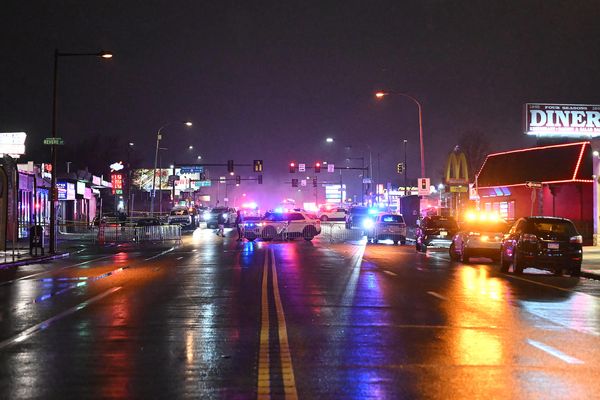
Forget the cartoon impossibilities of “faster than light” SF spaceships. In reality, the scale of interstellar distance and the constraints of physics mean any craft we build will take centuries to reach even the nearest stars. Any such ship would need to be self-sufficient: generations would be born, grow old and die within its confines. It’s a situation with oodles of dramatic potential for a writer, so it’s not surprising SF’s backlist is packed with “generation starship” stories – so many, in fact, that it’s tempting to think all the variants have been written and the mode has pretty much run out of steam. How to make it fresh again?
Kim Stanley Robinson manages to do just that by playing his story completely straight. Aurora is, simply, the best generation starship novel I have ever read.
Our heroine, Freya, grows up in transit. Her world is two huge wheels, spun to imitate gravity, fixed around a long central axle aimed at the star Tau Ceti. Inside are 12 separate ecosystems, from tundra to tropical, each with their own human population, maximised for diversity of flora and fauna. The ship has been flying for 160 years and is now approaching its target system, undertaking the ticklish business of slowing from 0.1-of-light-speed to a more manageable velocity. Tau Ceti has many planets, around one of which is a moon with good levels of oxygen and no indigenous life: a perfect blank slate for new colonists.
So far, so conventional. Indeed, Robinson foregrounds the bare facts of this voyage by giving most of his narration over to the ship’s central computer as it painstakingly works towards a de facto Turing test pass. This artificial mind is happy to provide great scads of data about every aspect of the ship. In the hands of another author it might amount to tedious specifying and dry-as-interstellar-dust worldbuilding, but Robinson makes it come thrillingly, grippingly alive.
It’s hard to summarise Aurora’s story without spoilers, so I’ll limit myself to saying that its apparent simplicity is deceptive. In fact, Robinson has written an enormously complex, stimulating novel that gracefully finesses its intellectual depth. It is, for one thing, superbly insightful on the way entropy actually works in complex systems; how things break down or degrade, the stubbornness of the cosmos, the sod’s-lawishness of machines. Valves stick open, biome lakes wash away their beds and start to corrode the fabric of the ship, kilometre-long artificial lights blink out. In deep space, any of these glitches might lead to annihilation. The fixes are desperately costly of labour and resources. The ship is increasingly subjected to bodge jobs, and so liable to further breakdowns.
Aurora has something of the flavour of current spaceman-in-peril bestseller The Martian by Andy Weir. In both books, the reader becomes deeply absorbed in the account of resourceful humans solving a string of life-threatening technical challenges in an unforgiving environment. But comparisons to The Martian sell Robinson’s achievement very short, for Robinson can write rings around Weir, and indeed around pretty much any contemporary novelist. The writing is plain and to the point, except for a few set pieces – as when the colonists experience a true sunrise for the first time in their lives – when Robinson expertly ramps up the style. Where the novel really scores, though, is in the depth and truth of his human beings, both as individual characters and as communities. Indeed, it’s the way Robinson is able to combine individual and social perspectives into a seamless whole that really makes the book.
Like the neolithic humans of Robinson’s last novel, Shaman, the characters in Aurora learn what it means to go chronically hungry. As in his kaleidoscopic 2312, terraforming new worlds proves much harder than fixing the environmental problems of our own beautiful planet – although we seem to be finding it difficult to do even that simple thing. Robinson is wise on the whys of this. As he puts it in Galileo’s Dream: “Fights over ideas are the most vicious of all. If it were merely food, or water, or shelter, we would work something out. But in the realm of ideas one can become idealistic.” Ideas simplify and metaphors distort. Reality is otherwise. Aurora’s ship’s computer notes: “Life is complex and entropy is real.” The novel dramatises these two great truths stunningly well.
This apparently simple tale unpacks into a mellow, complex meditation on human stubbornness (for good and ill); on the environmental disaster that is happening all around us; on hope, love and the mystery of consciousness itself. Aurora is a magnificent piece of writing, certainly Robinson’s best novel since his mighty Mars trilogy, perhaps his best ever.
• Adam Roberts’ latest book is Bête (Gollancz). To order Aurora for £15.19 (RRP £18.99) go to bookshop.theguardian.com or call 0330 333 6846. Free UK p&p over £10, online orders only. Phone orders min p&p of £1.99.







